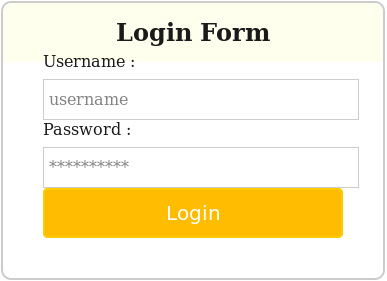Ophidia allows users to share work sessions.
Basically, a session corresponds to an experiment and consists of a work space, data, history of commands (JSON Requests), results (JSON Responses), web space, exported objects, etc. A session is identified by a number (session code) that is assigned automatically by Ophidia Server when the user requests the creation of the session. An alternate way to refer a session is the related session identifier, i.e. an URL like the following one
http://hostname/ophidia/sessions/8912794871982734981234/experiment
where hostname is the reference Ophidia Server and the number 8912794871982734981234 is the unique session code.
Any user can create a new session by exploiting the operator OPH_MANAGE_SESSION, thus becoming its owner.
The owner of a session can finely grant access privileges to other users, thus sharing the experiment. There are four kinds of privileges:
The owner is always an administrator and its role cannot be changed. Moreover, the owner is able to disable or close a session.
Session management relies mainly on the operator OPH_MANAGE_SESSION. Use the command OPH_RESUME to resume an existing session as well as previous commands and related outputs. See also the commands resume and view of Ophidia Terminal.
Any session is associated with a web space where operator results may be published. Examples of web resources put in this space are the JSON Requests previously submitted, the related JSON Responses, NetCDF files exported from the platform, data cubes published through OPH_PUBLISH, etc.
Some session web resources are:
the experiment, i.e. the list of the commands submitted within the session, which includes links to JSON Requests, JSON Responses and other results; the URL is simply the session identifier
http://hostname/ophidia/sessions/8912794871982734981234/experiment
NetCDF files exported by OPH_EXPORTNC or similar operators; the URL is like
http://hostname/ophidia/sessions/8912794871982734981234/export/nc/1/1/measure.nc
web pages containing data and metadata associated with a data cube; the URL is like
http://hostname/ophidia/sessions/8912794871982734981234/export/html/1/1/page0.html
the list of the sessions (and the links to related web spaces) where the user is authorized to access
http://hostname/ophidia/sessions
Depending on server configuration (see option --enable-webaccess in Administration Guides) the access to session web space could be grant only to session users: to get a web resource the user has to log in using the same credentials to access Ophidia Server by Ophidia Terminal.
When a user requests for a restricted session resource, the following login form has to be filled to access the resource. The user can browse other resources without sending credentials again.

Once the user is logged into the system, she will be able to navigate in her sessions through the following web application, getting access to: the list of sessions, history of commands, requests/responses, output produced by the user.

How to create a new session?
oph_manage_session action=new;
or simply
new
How to list existing sessions?
oph_manage_session action=list;
How to switch to an existing session http://hostname/ophidia/sessions/8912794871982734981234/experiment ?
oph_resume session=http://hostname/ophidia/sessions/8912794871982734981234/experiment;
or simply
resume http://hostname/ophidia/sessions/8912794871982734981234/experiment
How to list the last 3 commands submitted in current session?
resume 3
How to list users of a session?
oph_manage_session action=listusers;
How to grant access roles write and execute to user foo ?
oph_manage_session action=grant;key=user;value=foo:write|execute;
How to revoke privileges of user foo ?
oph_manage_session action=revoke;key=user;value=foo;
How to remove a session?
oph_manage_session action=remove;